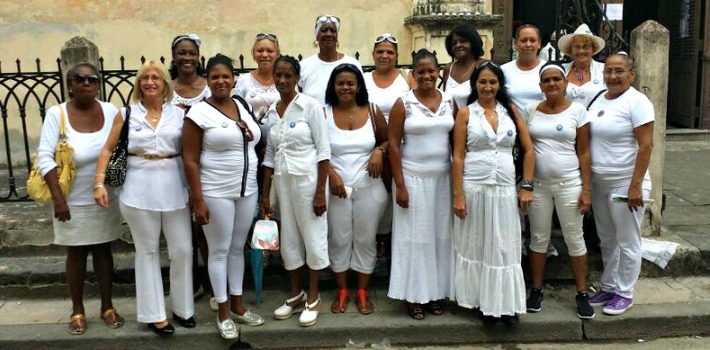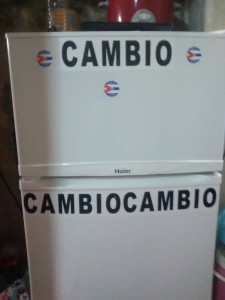
EspañolLike many Cuban dissidents, Nelson Rodríguez eats when he can. His diet consists mainly of a daily ration of arroz moro (rice with beans). The Cuban regime has banned the 50-year-old lawyer from practicing law, and like hundreds of other dissidents on the island, he must find ways to survive in the communist country.
The life of a dissident in Cuba entails much more than holding a negative attitude toward the socialist government that has held power for the last 56 years. To shed light, the PanAm Post went direct to the source, and spoke with the Cuban opposition in Havana about the challenges of standing up to the longest-running dictatorship on the continent, and their hopes for the future.
As we travel near José Martí Plaza, where Pope Francis made his speech to the Cuban people last month, Rodríguez explains that Wi-Fi hotspots in the area are only available for tourists.
“The Swedish, Czech, and US embassies have opened their doors for us to come inside and use the internet for free,” he says, but it does not come without risks. “If state-security officials catch you entering a diplomatic building, they will mark you as a dissident.” Life then becomes much more “complicated,” Rodríguez explains.
Dissidents are often dismissed from their jobs, and getting a new one is nearly impossible, he says. Publicly opposing the Castro regime can get you excluded from the labor market, and lead to life as a social pariah.
“The pope’s visit won’t solve anything in the island. Politically, it favored the regime. For the Cuban people, nothing has changed; we still lack the same liberties.”
Rodríguez, who co-founded the Cuban Anarcho-Capitalist Club, says that while the regime claims to encourage diversity of thought and opinion, the Constitution narrowly limits free speech: “In Article 53, [the Constitution] states that free speech is a right, as long as the message conveys socialist principles,” he says.
The Ladies in White are one of the most prominent dissident groups on the island. They gather every Sunday and march to demand respect for human rights in Cuba. Berta Soler, leader of the Ladies in White, says it is not uncommon for state-security forces to greet her at her door to try to prevent her from marching on Sunday mornings.
Other dissidents, like performance artist Tania Bruguera, have been similarly harassed. State officials jailed Bruguera earlier this year and revoked her passport, after she held an unauthorized performance at Revolution Plaza.
Another artist, Danilo Maldonado Machado, better known as El Sexto, has been jailed without trial since December 2014. Machado, whose street art permeates the streets of Havana, faces criminal charges for releasing two pigs covered in green paint, labeled “Raúl” and “Fidel,” in a reference to George Orwell’s Animal Farm.
As of Sunday, October 11, three other dissidents remain jailed for breaching Pope Francis’s security detail, in an attempt to ask the pontiff to meet with the Cuban opposition.
Furthermore, behind every dissident, there is a family that suffers through the consequences of the regime’s oppression.
Such is the case of Gilberto, who preferred to withhold his last name, one of the 53 political prisoners that Cuba released in January following the restoration of diplomatic relations with the United States. The activist of the Patriotic Union of Cuba (UNPACU) spent two years in jail, leaving behind his wife and a now five-year-old son.

Gilberto lives in an apartment building that he says was constructed over 300 years ago, but never maintained. His unit is at the end of 30-meter corridor. Some parts of the building have caved in. There are no doors, no running water or natural gas, and only a curtain separates his home from the common areas.
When asked if he is ever scared of going back to jail, the dissident remains defiant. “In a struggle, you definitely take risks. Just being born is already a risk.”
He says he was initially arrested for opposing the “evil policies” of Raúl and Fidel. “The only thing they have done in the last 56 years is steal the wealth of this poor country.”
He laments that Cuban children “are taught to write and read, but they never are taught their rights.” Meanwhile, Cuban workers earn a minimum monthly salary of CUP$300, or roughly US$15, Gilberto adds.
[adrotate group=”8″]
While there is no precise account of the number of people involved in the Cuban dissident movement, Gilberto and Rodríguez claim the number is much larger than those the government has registered. They say that, unlike themselves, many are afraid of expressing their opinions publicly.
Soler agrees. If not for the overt repression, “many, many more women would walk by our side,” she says.
 Versión Español
Versión Español












